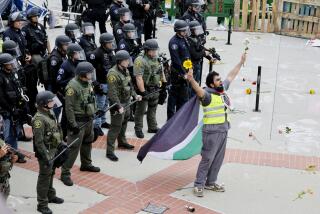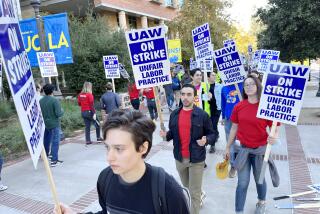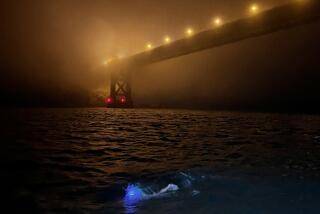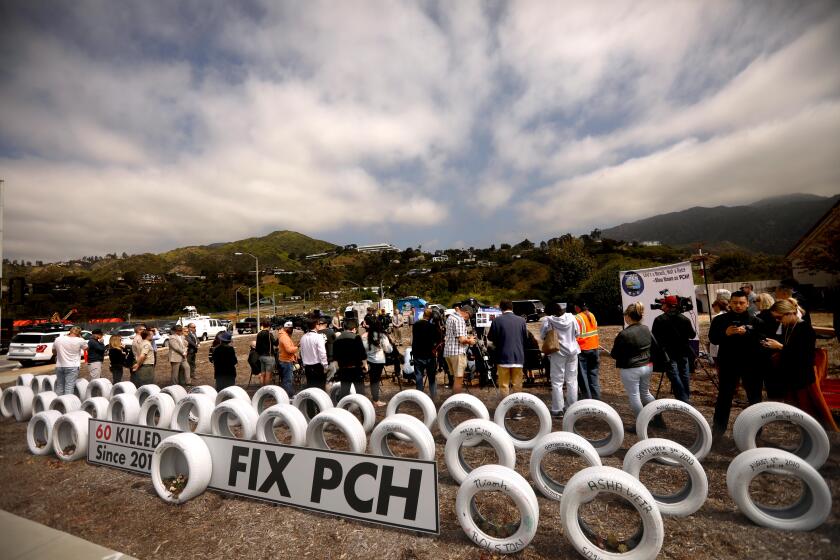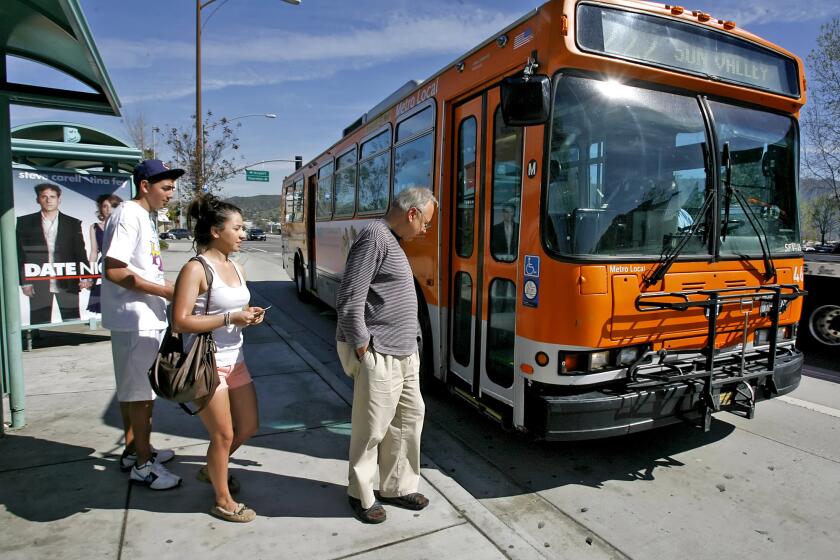Law Barring Solicitors at LAX Is Thrown Out
A federal judge, acting in a legal squabble that has endured for 27 years, has thrown out a city ordinance that bars charities from soliciting donations at Los Angeles International Airport.
U.S. District Judge Consuelo B. Marshall, in a written opinion made public Monday, said the sweeping ordinance violates the California Constitution, which, she noted, is more protective of free speech than the U.S. Constitution’s 1st Amendment.
In her 10-page opinion, she observed that two groups challenging the city in federal court were not seeking permission to solicit passengers at ticket counters, check-in lines, baggage claim areas, or at arrival and departure gates. Instead, she said, they were asking for the right to operate in general circulation areas near commercial concessions.
And, she added, any misconduct by some solicitors does not justify declaring LAX off-limits to all of them.
Marshall left the door open, however, for airport authorities to restrict the “time, place and manner” in which solicitors can ask for money so long as the restrictions are narrowly tailored and serve a reasonable purpose.
Whether Marshall’s ruling signals an end to the protracted dispute remains an open question.
A spokesman said the city attorney’s office will consider whether to appeal the decision or develop new regulations designed to withstand any court challenge.
Los Angeles has been enacting laws and regulations to bar airport solicitors since 1974, only to be beaten back in numerous civil liberties challenges that have gone as high as the California and U.S. supreme courts.
The ordinance declared unconstitutional by Marshall prohibited solicitations of funds anywhere inside LAX’s terminals, sidewalks or parking lots. Violators faced six months in jail and a $1,000 fine.
Adopted in 1997, the law has never been enforced. A few days before it was to take effect, the International Society of Krishna Consciousness of California and the Committee for Human Rights in Iran sued in federal court and obtained a restraining order against the city.
In 1998, U.S. District Judge John G. Davies, now retired, found the ordinance unconstitutional, but he was overruled by the 9th Circuit Court of Appeals, which sent the case back to the district court.
During a hearing before Marshall in June, lawyers for the city contended that solicitors annoy passengers, distract security personnel and interfere with pedestrian flows inside LAX’s terminals.
The plaintiffs denied those allegations and presented a study prepared by their own experts contending that LAX’s terminals were not as congested as the city claimed and that solicitors did not impede passengers.
Lawyers representing the city also raised the specter of terrorist organizations using the airport to collect money from unsuspecting passengers.
In March, the FBI arrested seven members of the Committee for Human Rights in Iran and accused them of funneling money collected at LAX to the Mujahedin-E Khalq, which has been designated a terrorist group by the U.S. State Department.
The seven defendants and the committee have denied the terrorist allegations. The committee said it was founded in 1993 to publicize human rights abuses in Iran and to assist victims of persecution and torture.
City lawyers also argued before Marshall that the airport is not a public forum, a claim the judge dismissed.
Barry A. Fisher, a Century City lawyer who has been representing the Society of Krishna Consciousness since its first legal battle with the city in 1974, said he was pleased by the judge’s ruling.
But he warned that his clients would continue to fight any attempt to impose new regulations that restrict the lawful activities of charitable solicitors.
“Unless there truly is a pedestrian flow problem, then I don’t think any regulations of that kind are going to be justified in a practical or constitutional sense,” Fisher said. “And if they try again to limit free expression in the airport without it being justified, they will invite another round of litigation.”
The Society for Krishna Consciousness has successfully sued airports from Anchorage to San Juan, Puerto Rico, for the right to solicit donations.
Several major airports across the country have been more successful in limiting solicitations by charitable groups. At San Francisco International Airport, charitable organizations are restricted to booths inside terminals. Solicitors must have permits to operate and must stay inside the booths at all times.
More to Read
Start your day right
Sign up for Essential California for news, features and recommendations from the L.A. Times and beyond in your inbox six days a week.
You may occasionally receive promotional content from the Los Angeles Times.
